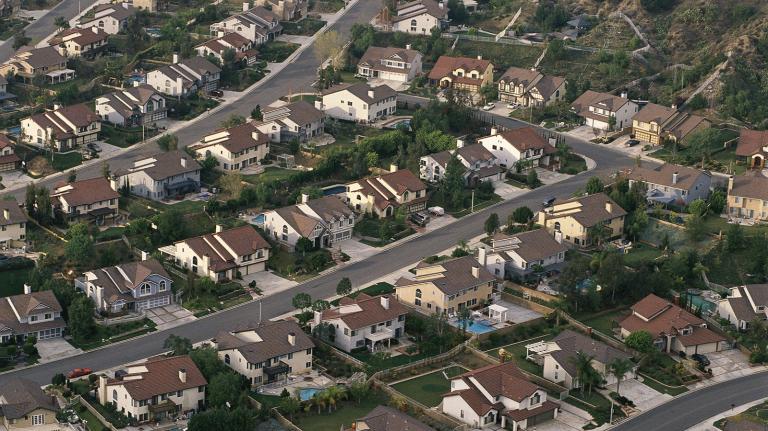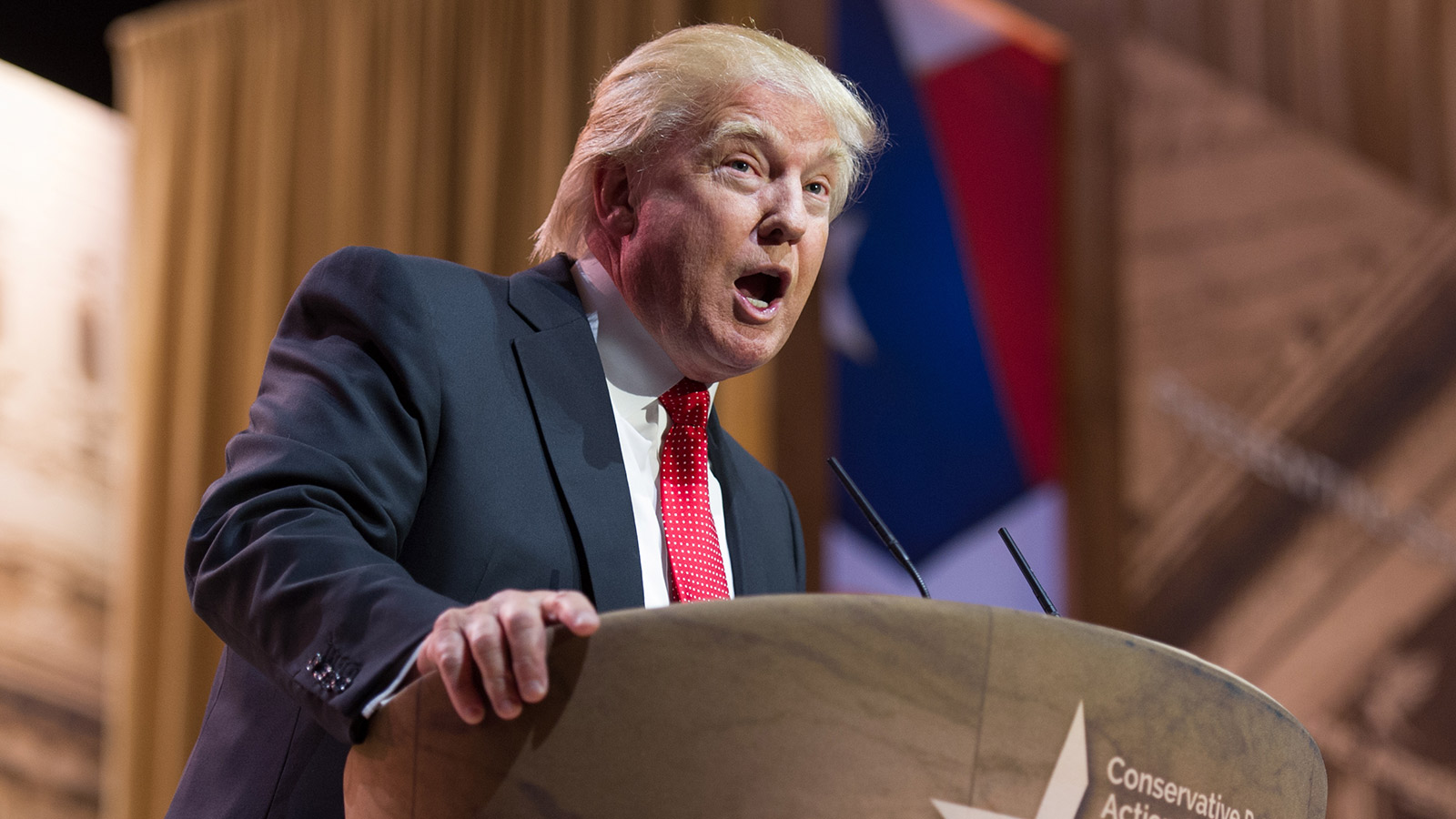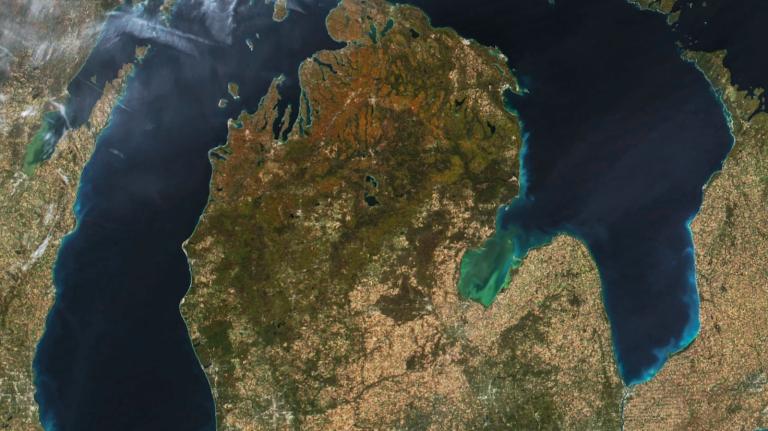As a candidate for president, Donald Trump is very right-wing. But on one issue, at least, he breaks the Republican mold: He supports more spending on mass transit.
In an interview with The Guardian on Tuesday, Trump said the U.S. should invest in its decaying, underfunded transportation infrastructure. The Guardian’s Ben Jacobs reports:
On domestic policy, the lifelong New Yorker disagreed with many of his Republican opponents on the importance of spending money on rail infrastructure.
“We have to spend money on mass transit,” Trump said. “We have to fix our airports, fix our roads also in addition to mass transit, but we have to spend a lot of money.”
“China and these other countries, they have super-speed trains. We have nothing. This country has nothing. We are like the third world, but we will get it going and we will do it properly and, as I say, make America great again.”
Well said, Donald Trump! I’ve ridden those high-speed inter-city trains in China and Europe and I can attest to their speed, reliability, and value — vastly superior to U.S. rail travel. That has many causes, but certainly Congress’ chronic underfunding of Amtrak is one of them. Likewise, our urban and regional mass transit networks are pathetic compared to Europe’s. Again, that reflects the fact that Congress has failed to raise the gasoline tax, even to keep pace with inflation, since 1993.
In the same interview, Trump called for federal funding for body cameras on police officers, a measure that is supported by civil rights activists to counteract police brutality.
How did we end up with an ignorant racist buffoon offering sound suggestions on urban policy? Here are a few interesting points:
- It matters where candidates come from. Some issues are more regional than purely partisan or ideological. Take climate change: Democrats from fossil fuel-rich states tend to oppose climate action, while Republicans from the Northeast are often relatively moderate on the issue. When it comes to mass transit, politicians from cities and urbanized regions will be more supportive. Republican presidential candidates in recent years have mostly hailed from sprawling states such as Texas, Kansas, and Arizona, where transit is virtually non-existent. And for Republican politicians who specialize in appealing to the GOP’s suburban and rural biases, such as Newt Gingrich, subways are a codeword for dirty urban liberalism.
Trump is unusual because he is an urban Republican candidate. But it’s worth noting that Trump is an exception even among Northeastern Republicans in his pro-transit views. Mitt Romney backed smart growth when he was governor of Massachusetts, but ditched that — along with his support for health-care reform, abortion rights, and climate action — when he ran for president. New Jersey Gov. Chris Christie killed a plan for a much-needed rail tunnel connecting his state to New York City.
- Trump’s inexperience is showing. Per the examples of Romney and Christie, Trump simply lacks the caution and savvy to think about how what he is saying will play in the Iowa caucuses. Or maybe he just doesn’t care. When former New York Mayor Rudy Giuliani ran in the 2008 Republican primaries, mass transit was absent from his stump speech. Urban Republicans who, unlike Trump, are serious about winning their party’s nomination try to avoid seeming too urban.
- Our presidential nominating process is rurally biased. Why should Trump have to worry about how everything he says will come across to Iowans? Not because there are so many of them, but because they always get to vote first. Then New Hampshire votes, then South Carolina, then Nevada. In other words, the process is led by sparsely populated states. Maybe other Republicans from the Northeast and Californian Carly Fiorina would sound more like Trump on transit if the nation’s largest, most urban states voted as early as Iowa.
- Trump’s nominal support for transport funding is bogus. So for that matter is President Obama’s. Spending money requires money. Federal government money has to come from taxes. Trump has not offered a funding source for transportation infrastructure investment. I can think of lots of good sources: a higher gasoline tax, or a carbon tax that climate science-denying Trump would reject. In terms of general revenues, Trump’s tax plan is to massively cut taxes for the rich. He would lower the top marginal rate to 25 percent, the lowest it has been since 1931, cut corporate and capital gains tax rates, and abolish the estate tax. Revenue from personal income taxes would decline by around $11 trillion over 10 years. So transit isn’t getting any bonuses.
That’s the fundamental problem with Trump’s supposed populist impulses: They run head-on into his regressive, right-wing tax plans. You cannot build mass transit — or any of the other infrastructure of a low-carbon society, such as transit-oriented-affordable housing — without paying for it. Transportation and housing are the two biggest average household expenditures, and their combined cost renders only 39 percent of American communities affordable, according to the Department of Transportation. Working-class Americans need better transit and affordable, transit-accessible housing — but Donald Trump will not be the candidate to give it to them.




